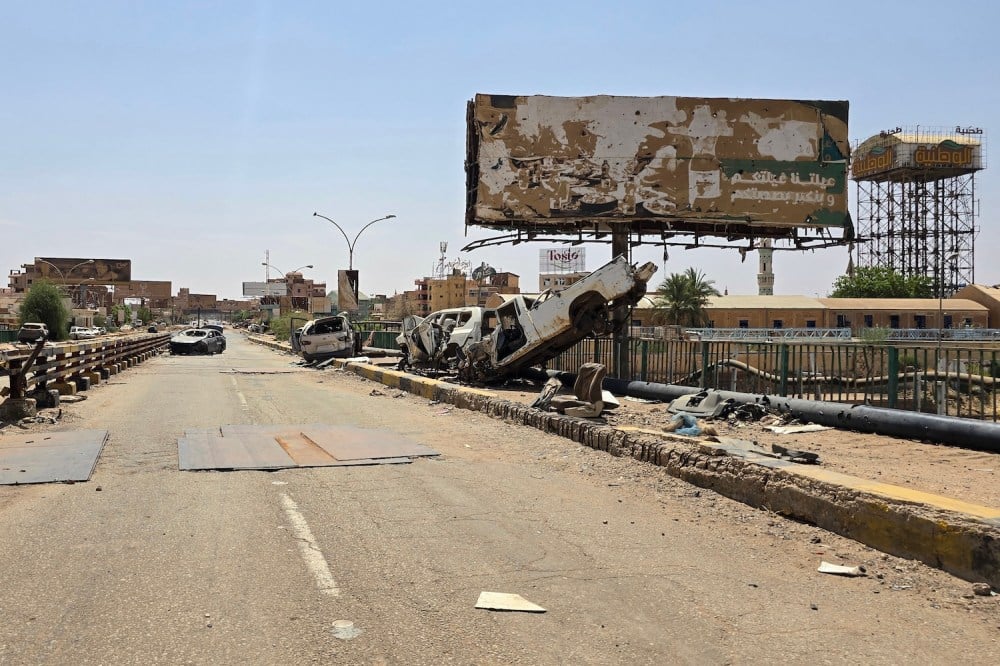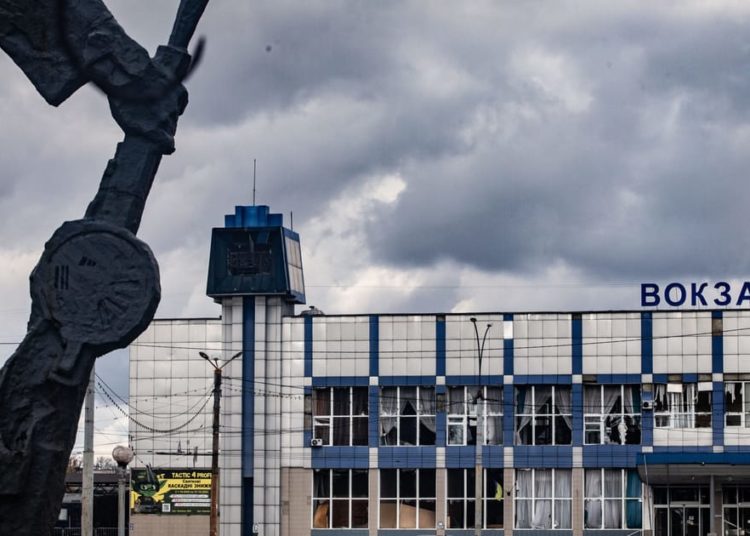After three years of intense fighting that has now touched every corner of Africa’s third-largest country, Sudan’s civil war has settled into a deadly stalemate. The Sudanese Armed Forces (SAF) and their Rapid Support Forces (RSF) adversaries are locked in a battle that seems more aimed at incremental advantage than outright victory. The war has become an end to itself—a self-perpetuating folly that neither side is capable of winning, nor can they afford to lose.
Among the carnage, there is honor among thieves, with both sides cynically playing by the same rules. Neither side is seriously targeting the other’s leadership, nor their respective gold-mining profit centers. Doing so could risk the ire of the war’s Emirati and Egyptian backers, who observers allege have helped launder the RSF’s and SAF’s profits, respectively.
As a result, the war has become more political theater than territorial conquest, with Sudan’s 50 million civilians cast as the unwitting extras. Each side is playing the part that it has been scripted to play by its benefactors. They are merely the actors in a larger contest of strategic influence between wealthier regional states intent on gaining a strategic foothold on the western shores of the Red Sea and ensuring Sudan’s status as a long-term economic client state.
Now, as this fight grinds on and the humanitarian toll mounts, Sudan faces scenarios ranging from bad to worse. There still exists a small opportunity for constructive U.S. engagement to help chart a course out of hell, but it will require a level of attention and nuance that has so far been absent from Washington’s diplomacy.
The most likely scenario is that the status quo will endure while becoming increasingly deadly. Absent any dramatic changes, it appears that neither side can achieve a significant upper hand or deliver a knockout blow. Instead, the warring militias will likely continue to engage in cat and mouse battles across the country, leaving in their wake devastated communities and decimated infrastructure that are unlikely to be rebuilt any time soon. Fighting could continue for years, as long as both sides maintain a fresh pipeline of recruits and willing financial backers.
But while the belligerents may keep up the fight, the civilians’ ability to survive erodes by the day. Instead of talking about this conflict as the worst displacement and humanitarian crisis in the world today, we will soon have to talk about it as one of the worst in human history. Already, local estimates suggest than more than 500,000 children have died from malnutrition, while another 8 million people are on the verge of famine. And with resiliencies stretched beyond the breaking point, and an influx of international humanitarian assistance nowhere on the horizon, the world could be faced with civilian casualties akin to the country’s last civil war, in which more than 2 million people are thought to have died.
As if this outcome weren’t bad enough, things could still get worse. Either belligerent—or their backers—could feel compelled to finally push for total victory. For the Sudanese Armed Forces, this would almost certainly involve a greater and more explicit reliance upon the Islamist militias associated with the previous regime, as well as rogue state actors such as Russia and what’s left of Iran, to achieve a definitive tactical advantage. For the RSF, this would involve the acquisition of even more advanced weaponry, including next-generation strategic drones that can travel further and linger longer over targets. It would also likely involve redoubled support from the United Arab Emirates, which has the political and financial network to facilitate more materiel flowing in from neighboring states such as Libya, Chad, South Sudan, the Central African Republic, and Ethiopia.
Any increase in operational tempo and lethality would almost assuredly worsen the humanitarian crisis, exacerbating casualties. In a matter of months, Sudan could see a breakdown of remaining state institutions and a rapid descent into a kind of Libya-like failed state status that would threaten Red Sea navigation and send masses of refugees toward relatively safer lands.
The best scenario for unwinding Sudan’s spiraling conflict is both the most fraught and the most unlikely. But it is also the most urgent if the world hopes to prevent this catastrophe. Neither the SAF nor the RSF will voluntarily seek to lay down their arms to reach a political accommodation. Nor will they willingly relinquish their control over the country’s economic resources to any civilian authorities, even if a civilian coalition could be identified and organized to assume power. Instead, the regional and international backers of this war, along with the neighboring beneficiaries, must be brought together to agree on a way forward that acknowledges each party’s respective interest in Sudan.
Here, Washington seems to recognize that it has a role to play. During his White House meeting with African leaders on July 9, U.S. President Donald Trump announced, with unironic understatement, “We’re going to be facilitating peace … in places like Sudan, where they have a lot of problems.” And Secretary of State Marco Rubio’s senior advisor for Africa, Massad Boulos—fresh off his efforts to forge a cease-fire between the Democratic Republic of the Congo and Rwanda in their ongoing territorial dispute—recently indicated that seeking an end to the “power struggle” in Sudan would be his next priority.
The challenge for Boulos will be to simultaneously address the regional and internal dimensions of this conflict, all while managing a sometimes-disengaged White House that has eroded U.S. expertise and influence in the region. Already, the Trump administration has gutted much of Washington’s institutional knowledge on Sudan, including decades of personal relations, with the closure of agencies such as the U.S. Agency for International Development and offices including the State Department’s Bureau of Conflict and Stabilization Operations.
Boulos benefits from the perception that he has access to Rubio and Trump—he is the father-in-law of Trump’s daughter Tiffany—which has helped open doors for him across Africa. Still, reconstituting the U.S. government’s knowledge base on Sudan will be essential if he hopes to succeed in making progress with the belligerents, who—in more than 30 years of U.S. diplomacy—have dealt with 10 U.S. special envoys to the country.
On the regional level, the administration appears to be staking out a more pragmatic position than we have seen. Boulos has described Sudan’s war as “predominantly an internal conflict.” While this isn’t entirely accurate, it does suggest that the Trump administration is keen not to single out or antagonize its partners, such the UAE, for their role, as former President Joe Biden’s team did.
This is a wise tactic. Countries such as the UAE have been steadfast in their denial that they have played anything but a salutary role in Sudan, and publicly confronting them with allegations to the contrary is likely to only further entrench their position. Instead, Washington is reportedly organizing a meeting of foreign ministers of the UAE, Saudi Arabia, and Egypt to work toward a regional solution. Recognizing the leverage that these countries have over the belligerents and their respective interests in the war’s outcome is a necessary starting point. But any long-term peace will also require a shared understanding of how Sudan is governed and, most importantly, who governs it.
Washington is likely to have greater success in forging a regional consensus than it is in directly cajoling the warring parties in Sudan to make peace. But that doesn’t mean that it shouldn’t try to pursue both tracks at once. To date, the Trump administration has made no public outreach to either side of the conflict, nor has it sought to preview its diplomatic initiative with Sudanese officials. A set of recently announced U.S. sanctions, initiated under the Biden administration in response to the SAF’s alleged use of chemical weapons, has been Trump’s only engagement to date. These come on top of a host of Biden-era sanctions against the leaders of both the SAF and RSF, along with the companies that they use to support the war effort. Yet such efforts have not prevented ongoing civilian atrocities, suggesting that further punitive measures are unlikely to unlock a path toward peace.
Instead, a dual-track diplomatic approach will be required to disarm both internal and external spoilers who continue to benefit from the war’s status quo. That means contending equally with Sudan’s messy internal politics and the deep-seated drivers of the conflict as much as managing the competing ambitions of Washington’s regional partners.
As fraught as this endeavor will be, the alternative of a failed state and humanitarian catastrophe pose far greater risks to Washington regional interests.
The post Washington Can Keep Sudan’s Civil War From Getting Worse appeared first on Foreign Policy.




